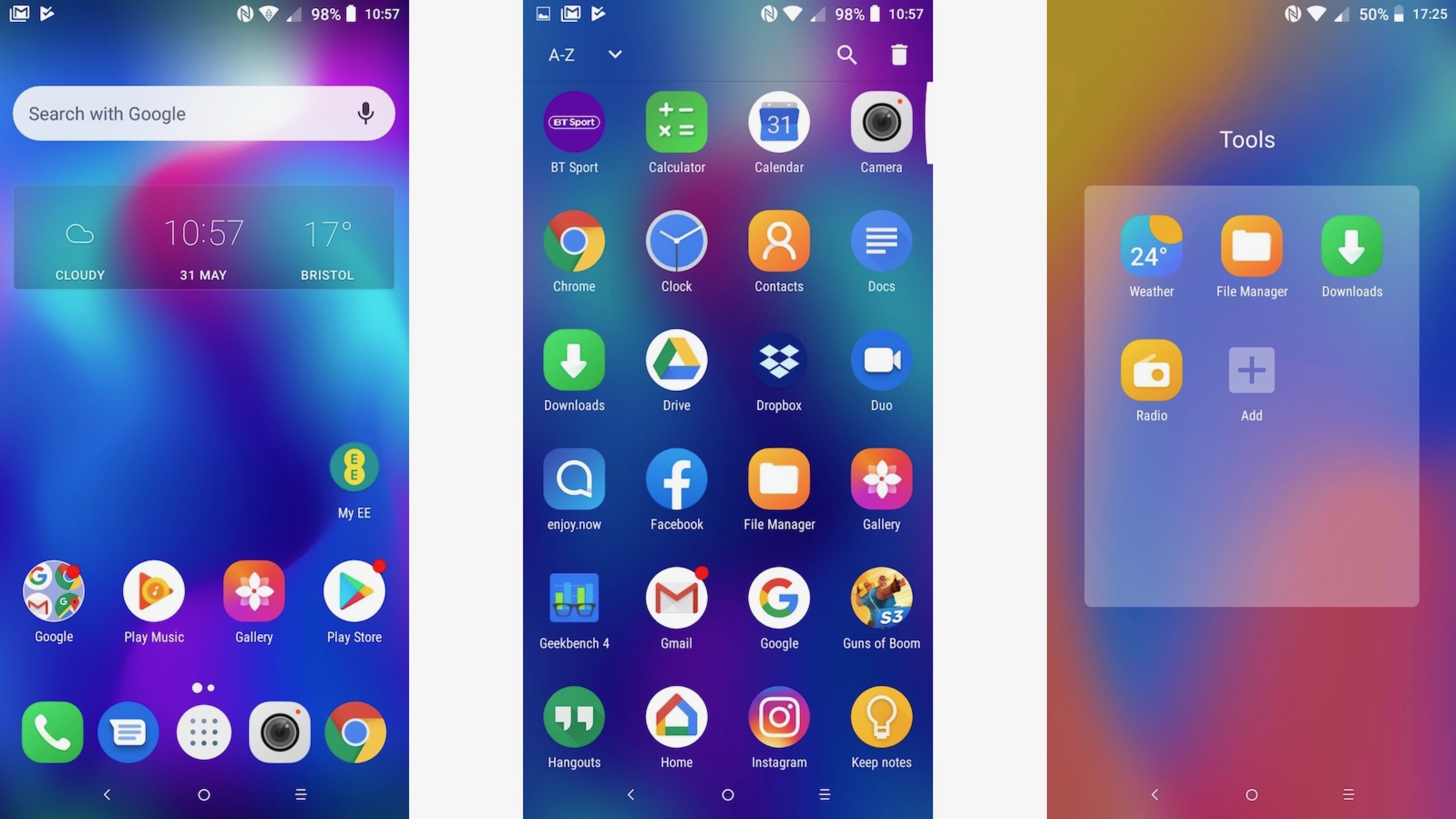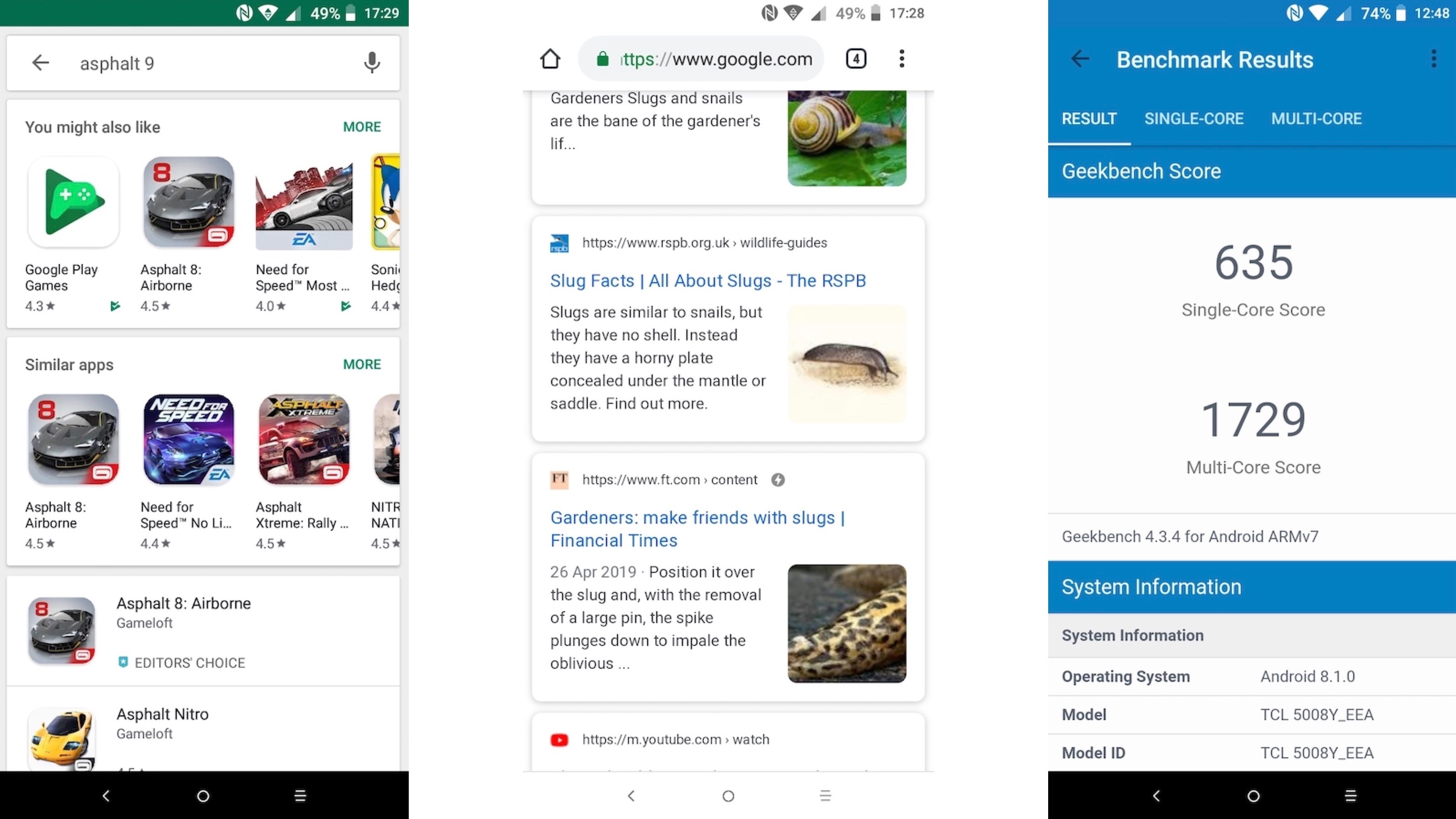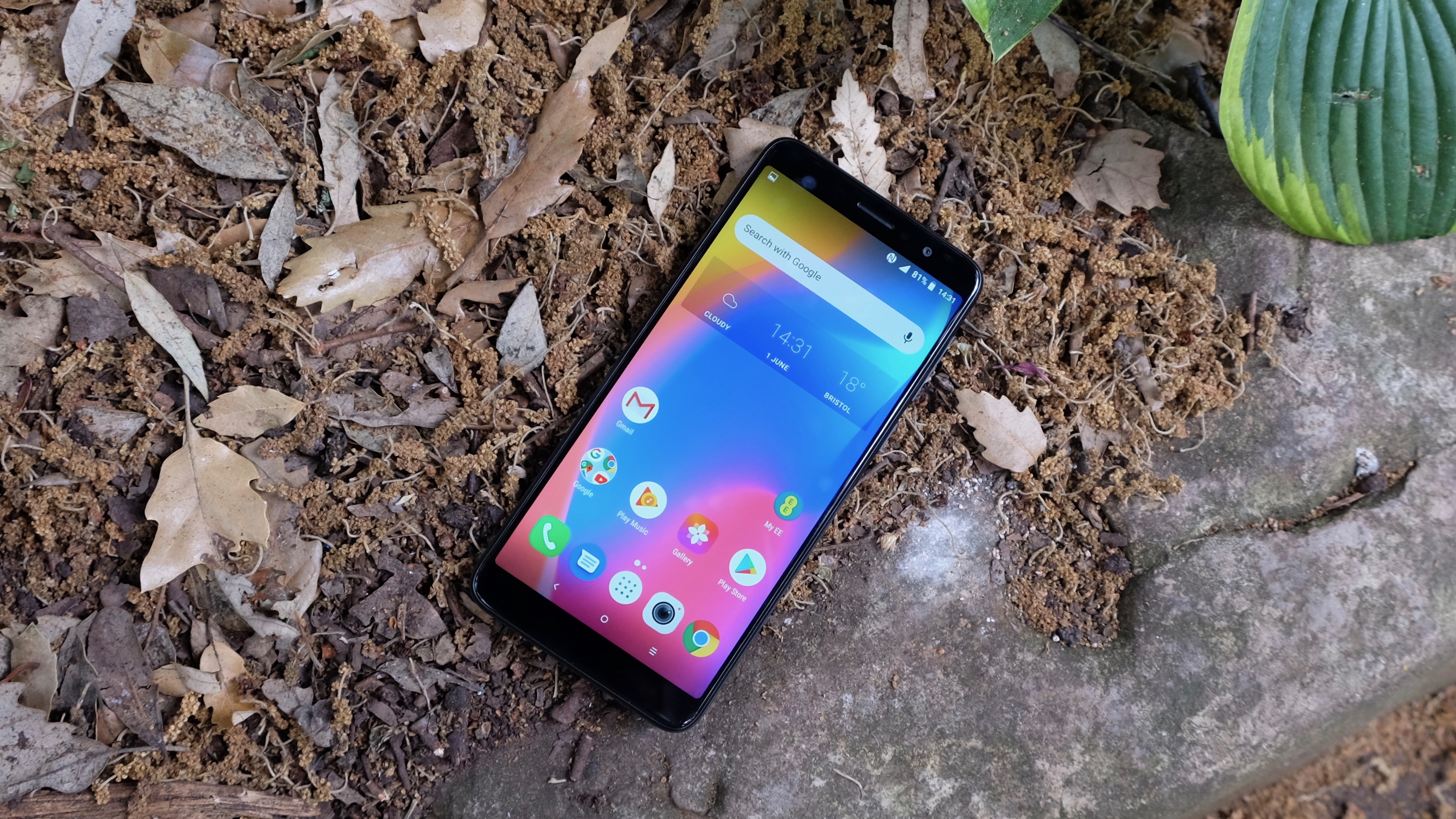Why you can trust TechRadar
Interface and reliability
- Android 8.1 Oreo is now outdated
- Alcatel’s custom UI is relatively clean
The Alcatel 1X goes with the brand’s own custom Android skin, which is far from the most offensive example of its kind. It’s a little rounder and softer than previous efforts, and it sticks closer to stock Android than either Huawei’s EMUI or Xiaomi’s MIUI.
You get an app tray as standard, and the menus are crisp and intuitive, though there’s no Google Feed (or anything for that matter) to the left of the main home screen.
You’ll need to put up with some pre-installed apps too, such as Facebook and BT Sport, as well as a folder of four Tools. But at least the latter keeps things simple, with a handful of largely justifiable apps like a File Manager, a Weather app, and a Radio app.

We’re not sure why you’d need a Gallery app with Google Photos on board, but that’s the same for a lot of phones.
The biggest downside of Alcatel’s custom UI doesn’t relate to its usability, but the fact that it’s so out of date. Android 8.1 Oreo is far from the freshest strain of Google’s operating system, and is no newer than the OS that shipped with 2018’s model.
In day to day use the Alcatel 1X’s software is clean and easy to use. We wouldn’t say that it’s a particularly smooth or fluid experience, but we suspect that has everything to do with the phone’s limited hardware rather than any glaring software faults.
Movies, music and gaming
- Decent screen, but poor performance holds media back
- 16GB of storage gets tight very fast
It hopefully goes without saying that the Alcatel 1X (2019) isn’t a media-playing powerhouse. If you came here expecting to be wowed by movies and games for just $120/$100, then we can only applaud your optimism.
Consuming media on the Alcatel 1X isn’t the absolute calamity you might expect. But everything good we can say about it stems from that large, balanced display.
Streaming movies over Netflix won’t get you the eye-popping detail of Full HD playback, but it still looks relatively clean. Best not to rely on the phone’s puny single speaker for sound, though. There’s a 3.5mm headphone socket for that.

As for playing games, well, we’d advise that you don’t. Or at least, not flashy 3D fare like PUBG and Asphalt 9. Indeed, the latter doesn’t even show up on the Google Play Store, indicating a lack of support for the Alcatel’s meagre chipset.
Even Super Mario Run - a famously fluid and flexible game - doesn’t leap and bound along particularly smoothly on the 1X.
Another crippling issue is a lack of storage space. 16GB is pretty disappointing at a time when even fairly affordable phones are being outfitted with 64GB and even 128GB.
Yes, there’s a microSD card slot for expansion purposes. But anyone wishing to pay so little for a smartphone isn’t going to want to then splash out on peripherals.
When you consider the fact that the Android OS takes up 5.5GB of storage, there’s really precious little headroom for media here.
Specs and benchmark performance
- MediaTek MT6739 CPU is old and slow
- 2GB of RAM simply isn’t enough
So far, we’ve mentioned the Alcatel 1X (2019)’s less-than-fluid UI navigation experience and poor gaming performance. That’s a surefire indication that its hardware isn’t up to scratch.
It doesn’t take too much digging to confirm the reason for this. The phone’s MediaTek MT6739 chipset is the exact same chip that powered 2018's Alcatel 1X, as well as the subsequent Alcatel 1. It’s also backed by a scant 2GB of RAM, which really isn’t enough to run Android smoothly.
There’s no two ways about it: this is a downright poor combination of components, and it affects pretty much every element of the phone. We’ve already discussed that gaming performance is bad (even the beautifully optimized shooter Guns of Boom runs sluggishly), but it’s the poor general performance that really rankles.

Simple tasks like setting off two app downloads simultaneously or hopping between open apps in the multi-tasking menu will make the phone crawl and stutter, while there’s a noticeable pause when jumping into the phone from sleep. Even scrolling through a list of Google search results in Chrome is frustratingly juddery.
Our Geekbench 4 tests certainly back up this appraisal. An average multi-core score of 1,720 is way down there in the charts. To be fair, there’s not much difference with the Moto E5, which scored a similar 1,771. But then, that super-budget phone is more than a year old now.
Current page: Anything else I should know?
Prev Page Battery life and camera Next Page Verdict and competition